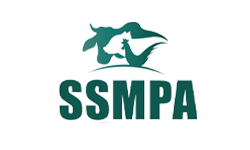
Click here to read the Rural Slaughter Modernization Intentions Paper.
These intentions outlined in the paper do not appropriately reflect the urgency of the current situation with regards to slaughter/cut & wrap capacity in British Columbia. We are facing a serious crisis that will continue to evolve and be exacerbated in the coming months. Abattoirs, stretched beyond capacity, are already canceling bookings that were made months ago with their next available dates being well into 2021. Producers are being left with literally nowhere to process their animals legally. The Government has an opportunity here to provide relief and oversight during a global pandemic that could be a catalyst for long-lasting, progressive change in the future.
The time to “undertake a risk assessment project to support development options for rural meat production” was years ago. It is too late for that now. Many operations simply cannot survive another round of consultations.
Exploring opportunities for alternative inspection methods is a step in the right direction. If we have learned anything from the COVID-19 pandemic, it is that a lot of what we previously thought could only be accomplished in face-to-face settings can actually be accomplished virtually.
It is our expectation that this could be implemented fairly quickly. Virtual technology could also potentially optimize the limited time inspectors have as they would be able to inspect more carcasses in a shorter period of time if travel is no longer an issue.
If slaughter capacity is expanded, cut and wrap capacity will need to grow proportionally. Rural abattoirs without cut and wrap facilities will need somewhere to send their carcasses for further processing. Many small, rural butcher shops are already operating at capacity and will need support/incentives to accommodate the increasing demand for custom-cutting services. Encouraging these businesses to scale will ultimately pave the way to greater regional food security and economic growth. Programs such as the Off-Farm Food Safety Program are well-positioned to provide this kind of support but may need some adjustments and more funding to meet demand.
Alberta has recognized the crisis and addressed it with their new On-Farm Slaughter Operation License. British Columbia was already far ahead of Alberta in terms of consultations, research and experience with on-farm slaughter. Surely we are in a position to implement meaningful change to address this crisis in a more timely manner.
The intentions paper indicates that “Consumer demand has increased for local meat due to national meat supply chain disruptions” but this doesn’t really capture the true picture. Consumer demand for local meat was already increasing long before the national meat supply chain disruptions. We were already struggling to meet the growing demand before COVID-19 became a global issue. This isn’t a new or unexpected problem. It has been on the table for a long time and there have been multiple/ongoing consultations with regards to these issues. With all the information already gathered, we should be able to act more quickly than this.
Saying “Developing a resilient and diverse food supply chain for British Columbia can help to mitigate large-scale production disruption” does not fairly acknowledge the significant contribution this type of production can make towards local food security and the local economy. A resilient and diverse local food supply chain isn’t something we should have just in case the “real” food supply chain breaks down. It should be the norm and we need appropriate infrastructure and regulations that reflect this.
“Late fall 2020” is too late to “begin regulatory and policy change.” We need it now. September was not the appropriate time of year to initiate meaningful consultation with the farmers and ranchers. We need to implement some emergency measures now to get us through this crisis. The Ministry could continue to consult through the winter when producers have more time to devote to this important process and new regulations and policies could be introduced in the spring. With an election taking place in the middle of the public consultation period, we fear further delays.
We need to act now to increase access to rural slaughter and butcher services. There is tremendous opportunity for the development and growth of a thriving local meat industry in British Columbia but too many regulatory barriers to realize this potential. The Union of BC Municipalities has passed numerous resolutions in support of expanding access to slaughter and processing for small-scale livestock operations since 2010, including 2018-B35 asking government to “give farmers the ability to slaughter their livestock on farm premises” and 2018-B75, which asks the government to “facilitate expansion of safe, local, slaughter and meat processing”. The BC Chamber of Commerce took a position on this in 2015, recommending “that the Provincial Government expand D and E licenses throughout the province to include the 18 non-designated areas”.
It has been frustrating for small-scale meat producers to see so many government resources going into programs such as Grow BC, Feed BC and Buy BC when it is impossible for these producers to scale their businesses to even meet the current demand. Local meat production could be a cornerstone of our province’s agricultural economy. Instead, it is more often than not a financial drain on the families who continue to operate these farms and ranches, often subsidizing the cost with off-farm income and great personal sacrifice in order to provide some level of food security to their communities. These producers need real, meaningful support and regulatory change now.


